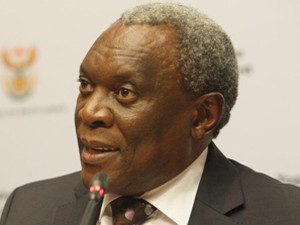
Since the Department of Communications (DOC) has further entrenched itself in the country's broadcast digital migration process, it appears the Department of Telecommunications and Postal Services (DTPS) has all but withdrawn from the project.
During the past few weeks, communications minister Faith Muthambi has been talking up digital migration, and last week she announced the DOC is fast nearing the switch-on date for digital terrestrial television (DTT) in SA.
She added that the DTT project team - which met recently to discuss issues surrounding lingering DTT delays - has already borne fruit. "I am confident that as soon as we have received the approval of Cabinet, you will be the first to know. I will then be in the position to announce a switch-on date of DTT in SA."
However, not everyone is convinced the DOC is the department that should be driving this project forward, arguing the DTPS, under the leadership of Siyabonga Cwele, should be taking the reins.
Earlier this year, when president Jacob Zuma split the old communications ministry into the current DOC and the DTPS, Cwele identified digital migration as a priority project for his department and stated he would personally drive the initiative.
Subsequently, the migration process ground to a halt when the migration policy was sent to Cabinet, at the end of August, for final approval. Since then, there has been no news about its progress, as government reportedly deliberates set-top box (STB) standards, particularly in regard to controls and encryption.
Since then, while almost no news has been coming out of Cabinet about the digital migration policy - even though it is now a given that SA will miss the international broadcast switchover date - the migration process has featured at the centre of an alleged turf war between Cwele and Muthambi. While both ministries have denied the existence of a power struggle, both have separately claimed responsibility and jurisdiction over the process.
However, in recent weeks, the DOC has become extremely vocal about digital migration, with Muthambi talking up the project and an imminent switch-on date, last week telling media: "I invite you to watch and monitor this space as we gallop towards that momentous announcement."
Despite the DOC being far more active in terms of digital migration, opposition politicians have expressed doubt whether Muthambi's efforts will yield any tangible results and remain convinced the DTPS should be steering the project.
Gone to ground?
In contrast, the DTPS has all but washed its hands of the project, refusing to answer any questions about digital migration. Cwele's spokesperson, Siya Qoza, has not responded to e-mails and telephone calls seeking clarity about his department's role in what it previously identified as a "priority project".
ITWeb has been unable to determine whether the DTPS is working in tandem with the DOC to achieve switchover, or which department was ultimately responsible for drawing up the migration policy that is currently with Cabinet.
It is also unclear why the DTPS is loath to acknowledge a project that Cwele was adamant about bringing to completion as soon as possible, shortly after he took office.
During an interview in August, Cwele admitted little time remained to complete digital migration. "As part of the international community, SA's reputation is at stake, and the country would remain backward and not become part of the information society if digital migration does not happen."
It is thus unknown why Cwele's department no longer wishes to discuss the project, but market observers have, in the meantime, been mulling the implications of SA missing the international switchover date, in June next year.
"Failure to migrate from the analogue spectrum does expose South Africa to the risk that a legitimate user of that spectrum can cause interference with our signal," says ICT veteran Adrian Schofield.
"The level of the risk depends on how soon any neighbours will want to reallocate the spectrum and what the spill-over of any new signal would be. In the short term, I guess a pretty low risk, which is probably what government is banking on."
Meanwhile, Cabinet is awaiting a presidential proclamation that will officially outline the responsibilities of each ministry, and politicians are convinced it will once and for all assign the project to the DTPS.
Democratic Alliance shadow minister of telecoms and postal services Marian Shinn has stated Muthambi is trying to grab territory that does not fall within her executive authority - defined by the Acts of Parliament allocated to her ministry by the president. Shinn explained the departmental skills for the DTT migration are all situated within the DTPS, not the DOC.
Share